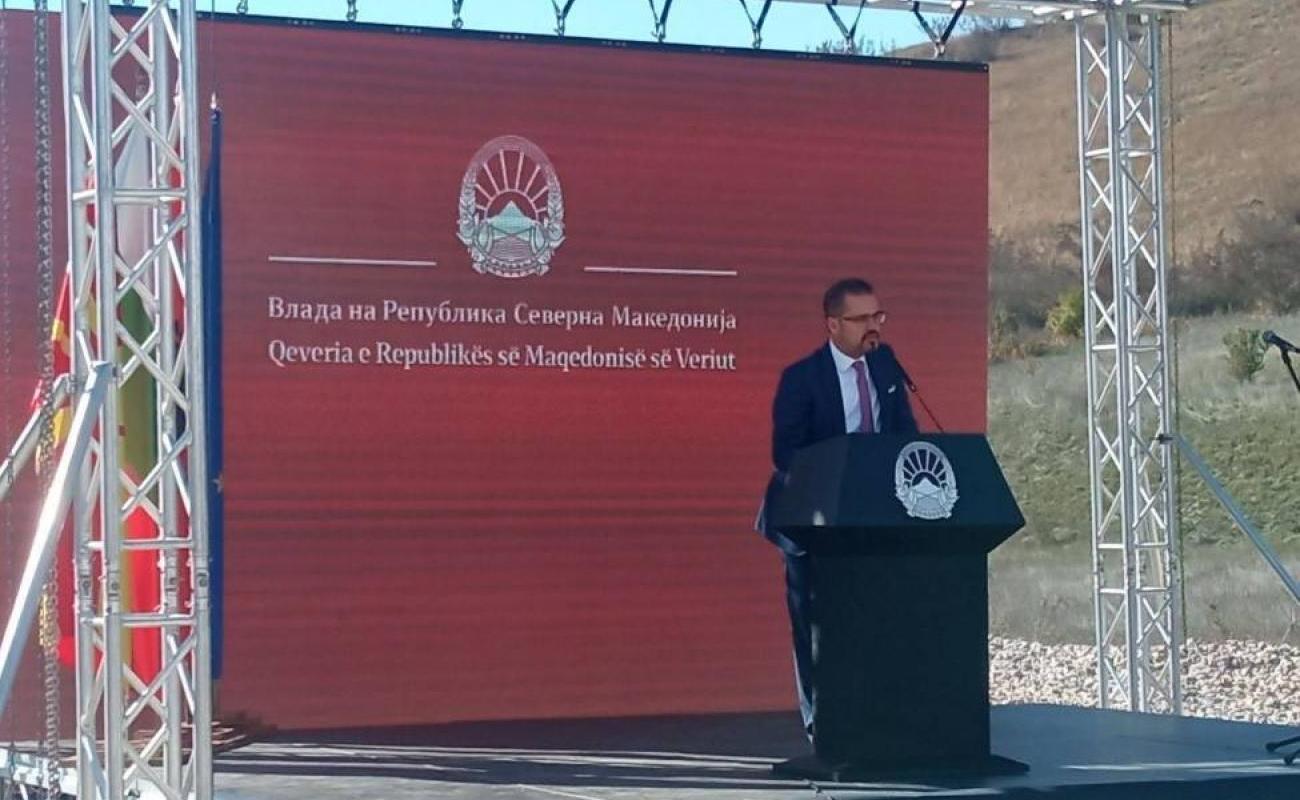EBRD-supported railway projects in North Macedonia enter new phase

- Investment supported with EBRD loan of almost €200 million and €75 million EU grant
- Stepping up investments in rail, as greener mode of transport
- EBRD invested more than €900 million in transport sector of North Macedonia
Citizens of North Macedonia will benefit from greener transport and improved regional connectivity thanks to new construction on the eastern section of its railway network, part of the Pan-European Corridor VIII.
An event was held today to mark the start of construction works on a 34-kilometre section from Beljakovce to Kriva Palanka and the finalisation of remaining works on a 31-kilometre section from Kumanovo to Beljakovce.
The European Bank for Reconstruction and Development (EBRD) has extended a loan of almost €200 million to North Macedonia for these works on the two rail sections.
The railway upgrade also benefits from extensive support from the European Union (EU), which has provided a €75 million investment grant. In addition, bilateral donors to the Western Balkans Investment Framework (WBIF) have extended €6 million in grants for technical assistance for project preparation and supervision.
Earlier this week, works also began on Albania’s railway network. The reconstructed rail links will eventually connect – via North Macedonia – Albania’s largest port of Durres on the Adriatic with the Black Sea port of Varna in Bulgaria.
Including these investments, the EBRD has committed a total of €940 million to rail projects in the six Western Balkans countries to date and plans to invest nearly the same amount ‒ another €840 million – in the medium term.
Andi Aranitasi, EBRD Head of North Macedonia, said: “Improving transport infrastructure and especially railways, a safer and greener mode of transport, will not only improve regional connectivity and open up new economic and trade opportunities, but also plays a key role in addressing the urgent issue of climate change. The EBRD has allocated more than €350 million to date for the railway sector of North Macedonia, including €300 million for Corridor VIII and we are determined to see this strategic project for the country and the region completed”.
David Geer, Head of the EU Delegation to North Macedonia, said: “The start of construction works on the eastern sections of Railway Corridor VIII is a huge step in the expansion and modernisation of the railway network of North Macedonia. The project, which is being implemented thanks to the support of Team Europe, will not just improve national connections, but enhance connectivity across the region and with the EU. This is a clear example that we work best when we work together. With more than €688 million allocated to Corridor VIII railway projects, the Economic and Investment Plan is proving to be a catalyst for development across the region, enhancing cross-border cooperation, facilitating regional trade and bringing great benefits for local citizens and businesses, as well as the environment.”
The upgrade works on the Kumanovo to Beljakovce section will be carried out by an Austrian company, Strabag AG. The section from Beljakovce to Kriva Palanka will be constructed by Turkish company Gülermak.
The 89-kilometre eastern part of Corridor VIII starts at Kumanovo and ends at Dave Bair on the border with Bulgaria, passing through Beljakovce and Kriva Palanka. Once the eastern part of Corridor VIII is fully operational, it will enhance North Macedonia’s transport system and its sustainability, providing an additional regional route for traffic flows to and from North Macedonia and facilitating further regional integration.
The EBRD has been supporting North Macedonia in its efforts to improve the country’s transport infrastructure, with investments in rail and road. The Bank has provided more than €900 million to date for the construction of road and railway projects in the country.
The EBRD is one of the leading institutional investors in North Macedonia. To date, it has invested nearly €2.5 billion in 167 projects in various sectors of the economy.
